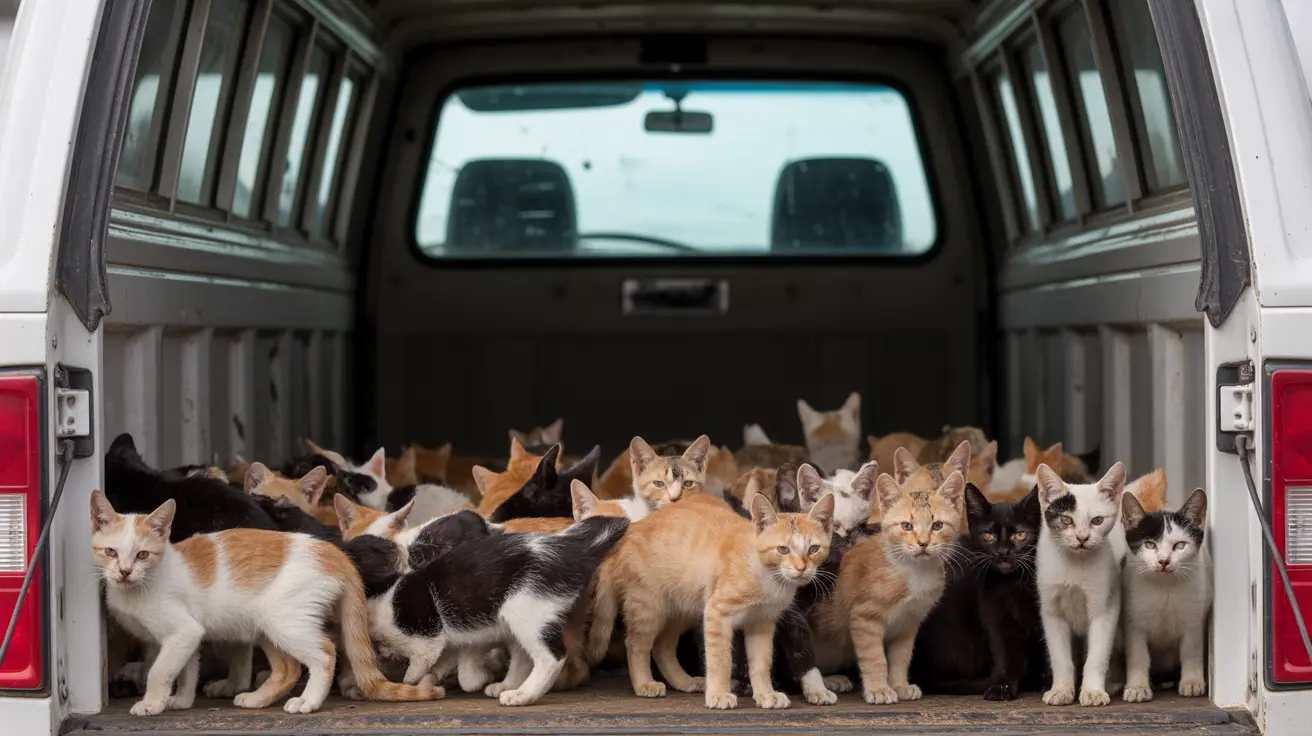A disturbing animal cruelty case has emerged in Tacoma, Washington, where a woman faces charges after authorities discovered more than 70 cats in horrific conditions inside a U-Haul truck parked outside a local motel. The discovery included one half-eaten cat, several malnourished animals, and multiple deceased cats, highlighting the severe consequences of animal abandonment and neglect.
This tragic incident underscores the critical importance of understanding animal welfare laws and recognizing the signs of animal neglect before situations escalate to such devastating extremes. For pet parents nationwide, this case serves as a stark reminder of the legal and moral responsibilities that come with animal ownership.
Understanding Animal Cruelty Cases and Legal Consequences
The Tacoma case represents one of many animal cruelty cases that occur across the United States annually. When authorities responded to reports about the U-Haul animal abandonment situation, they encountered conditions that clearly violated Washington state's animal welfare laws. The woman responsible now faces serious legal repercussions under animal cruelty laws USA provisions.
Most states, including Washington, classify severe animal neglect and abandonment as felony offenses. Legal penalties animal abuse can include substantial fines, imprisonment, and lifetime bans on pet ownership. In cases involving multiple animals like this one, prosecutors often file separate charges for each animal, potentially resulting in decades of combined sentences.
Recognizing Signs of Animal Neglect Before Tragedy Strikes
The malnourished pets symptoms found in this case likely developed over an extended period. Pet owners and the public should be aware of warning signs that indicate animals are suffering from neglect or abuse. These include extreme weight loss, dehydration, matted fur, open wounds, and behavioral changes such as excessive fear or aggression.
In vehicle abandonment situations, animals face additional dangers from temperature extremes, lack of ventilation, and confinement stress. Even with windows cracked, temperatures inside parked vehicles can become lethal within minutes, especially during warmer months.
Pet Safety in Vehicles and Transport Considerations
This case highlights critical pet safety in vehicles concerns that all animal owners must understand. Proper animal transport safety requires adequate ventilation, temperature control, regular access to water, and frequent welfare checks. Animals should never be left unattended in vehicles for extended periods, regardless of weather conditions.
When transporting multiple animals, owners must ensure each animal has sufficient space, food, and water for the duration of the journey. Overcrowding, as likely occurred in this U-Haul situation, creates dangerous conditions that can quickly turn fatal.
Animal Welfare Enforcement and Community Response
The swift response by animal welfare enforcement officers in Tacoma demonstrates the importance of community vigilance in protecting vulnerable animals. When members of the public report suspected animal cruelty or abandonment, they enable authorities to intervene before situations become more severe.
Following rescue operations like this one, abandoned cats rescue efforts typically involve immediate veterinary assessment, treatment for malnourishment and medical conditions, behavioral rehabilitation, and eventual placement in loving homes through animal shelter partnerships.
Preventing Pet Abandonment Through Education and Support
While this case represents an extreme example, preventing pet abandonment often requires addressing underlying issues that lead to such situations. Pet owners facing financial hardship, housing challenges, or personal crises should seek assistance from local animal welfare organizations rather than abandoning their animals.
Many communities offer low-cost veterinary services, temporary fostering programs, and rehoming assistance for owners who can no longer care for their pets. These resources provide humane alternatives to abandonment while ensuring animals receive proper care during transitions.
Frequently Asked Questions
What should I do if I find animals abandoned in a rental truck or vehicle?
If you discover animals abandoned in a vehicle, immediately contact local animal control or law enforcement and avoid attempting to remove the animals yourself due to safety and legal concerns. Provide as much information as possible about the location, condition of the animals, and vehicle details to responders.
How dangerous is it for pets to be left inside parked vehicles, especially in warm weather?
Temperatures inside parked vehicles can rise rapidly within minutes, even with windows cracked, leading to heatstroke, dehydration, and potentially death for confined animals. It is critical never to leave pets unattended in vehicles without proper ventilation, water, and shelter.
What are the signs of animal neglect or cruelty that pet owners and the public should be aware of?
Signs include extreme malnourishment, dehydration, lack of shelter, visible sores, mange, tight collars, behavioral distress, and in severe cases, death. Recognizing these signs early can help prevent prolonged suffering and prompt timely intervention.
Moving Forward: Lessons for Pet Communities
The Tacoma U-Haul case serves as a powerful reminder that animal welfare is everyone's responsibility. While this woman now faces serious legal consequences for her actions, the real tragedy lies in the preventable suffering of more than 70 cats who deserved compassionate care.
As pet communities, we must remain vigilant, report suspected abuse, support animal welfare organizations, and educate others about proper pet care. Only through collective action can we prevent similar tragedies and ensure all animals receive the protection and care they deserve.






